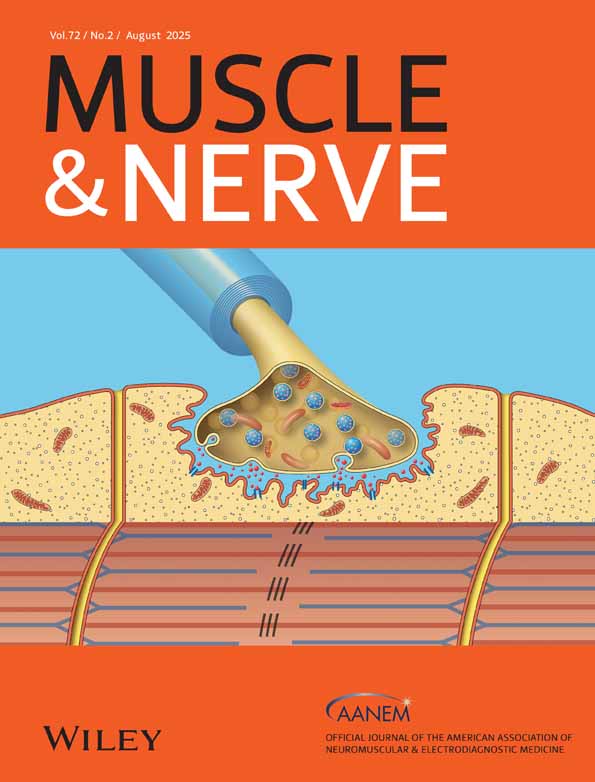Efgartigimod Is an Effective Treatment for Triple-Seronegative Generalized Myasthenia Gravis: A Report of Three Patients
Funding: This work was supported by Natural Science Foundation of Liaoning province, 2023-MSLH-406.
ABSTRACT
Introduction/Aims
Efgartigimod has been approved for treating acetylcholine receptor antibody-positive generalized myasthenia gravis (AChR-Ab+ gMG). The aim of this study was to report the therapeutic effect of efgartigimod in three patients with triple-seronegative (triple-SN) gMG.
Methods
The medical records of three patients with triple-SN gMG who received efgartigimod at a dose of 10 mg/kg weekly for four consecutive weeks (one treatment cycle) were retrospectively reviewed. The patients were evaluated using the quantitative MG (QMG) score and the MG activities of daily living (MG-ADL) scale.
Results
The first patient, who was refractory to conventional immunosuppressive therapies, demonstrated symptom improvement with a QMG reduction of 20 and an ADL reduction of 10 points following efgartigimod therapy. The second patient with a QMG score of 26 and an ADL score of 19, who showed a poor response to immunoglobulin therapy, achieved rapid symptom control after two cycles of efgartigimod treatment by week 10 (QMG: 2, ADL:1). The third patient, diagnosed with MG acute exacerbation (QMG: 6, ADL:5), responded favorably to efgartigimod therapy by week 4 (QMG:0, ADL:0).
Discussion
These patient reports provide preliminary evidence supporting the effectiveness of efgartigimod as a potential alternative treatment for patients with triple-SN gMG who do not respond adequately to traditional therapies. However, multicenter randomized controlled trials are necessary to further evaluate the efficacy and safety of efgartigimod in this patient population.
Conflicts of Interest
The authors declare no conflicts of interest.
Open Research
Data Availability Statement
The data that support the findings of this study are available from the corresponding author upon reasonable request.




